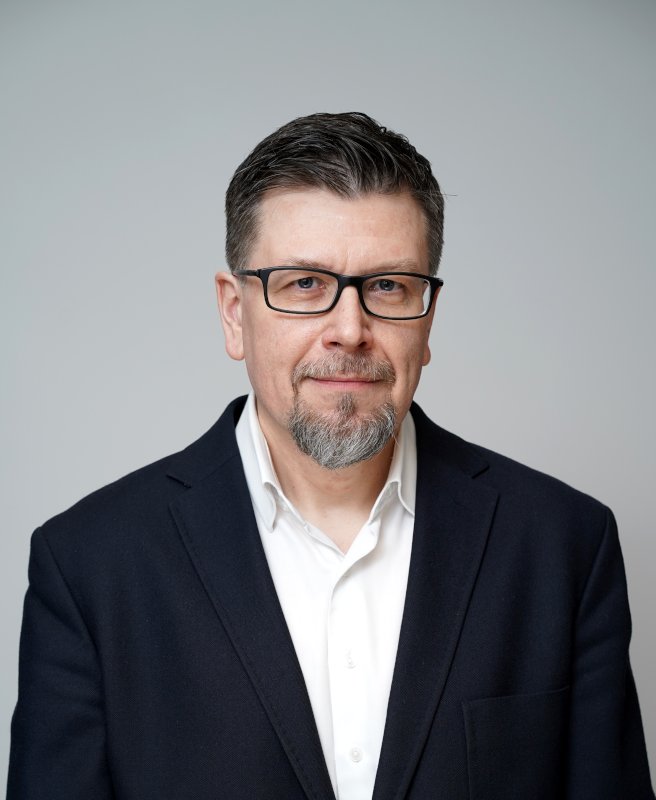We sat with Paweł Kaczmarczyk to discuss 20th IMISCOE Annual Conference that will take place in University of Warsaw from the 3rd until the 6th of July. Paweł is an Economist specializing in labour migration, mobility of the high-skilled, migration and the welfare state, migration policy, labour market and related issues. He is also a Professor at the Faculty of Economic Sciences (Chair of Population Economics and Demography), University of Warsaw and since 2016 the Director of the Centre of Migration Research and amongst the coordinators of the hosting committee.

Could you tell us who are the organizations and people behind the Warsaw Annual Conference?
The organisation of the IMISCOE AC is a joint venture of Centre of Migration Research (CMR) and Centre for Excellence in Social Studies (CESS) – both are parts of the University of Warsaw. CMR is well known to most of the IMISCOE members, as we have been part of the network for more than 15 years, so I shall say a few words about CESS. It is an interdisciplinary platform created to promote and strengthen cooperation between social researchers at the University of Warsaw and to facilitate their international collaboration. In that respect, IMISCOE AC is perfect to promote the CESS’s objectives. As this year's conference will be really big, organisation of this event involves a large part of the CMR staff, but especially important role played is by my fantastic colleagues: Joanna Bagadzińska, Anita Brzozowska, Kamila Fiałkowska, Barbara Jancewicz, Mateusz Krępa, Karolina Łukasiewicz and Marta Pachocka.
What is the format going to be in Warsaw?
Since the most critical phase of the pandemic is thankfully over, the Network Office and ourselves were hoping for a fully on-site conference. However, it soon became clear that there is a great demand for an on-line mode, especially that it promotes inclusivity. As a result, the conference will be a combination of on-site and on-line sessions. In some cases, we will also be offering a hybrid mode, but this has been seen from the very beginning as an exceptional, even if very useful, option. When designing the program it was our priority that on-line participants have an opportunity to attend a reasonable number of sessions. They will also be able to attend most of the side events, such as online debates, movie screenings etc.
The theme of the conference is "Migration and inequalities: In search of answers and solutions". What is the reasoning behind this theme?
Our initial idea was to propose an issue that is broadly perceived as a challenge, but it has so far attracted somewhat limited attention from IMISCOE members. The link between migration and income inequality appeared as an obvious choice. Yet it soon transpired that other forms of inequality must be included as well because of their importance for contemporary migration research. The final version of the programme – and this applies in particular to the plenaries and semi-plenaries – provides an extremely interesting and broad overview of how migration and inequalities are intertwined: from income and spatial inequalities to political polarisation and populism, racial inequalities and knowledge production. The conference opens with some fantastic scholars who will identify the key questions, and it concludes with a session involving both academics and policymakers looking for practical policy solutions.
We also want to get to know you as a migration scholar. First of all, about IMISCOE. How did you find out about IMISCOE? And how did you first get involved with IMISCOE? What did you particularly like about IMISCOE and its conferences?
CMR became a member of IMISCOE in 2007, and that is when I started to learn how the network works. Initially, participation in IMISCOE was a challenge, as I am an economist by training (with a focus on research on the drivers and consequences of labour migration) and my discipline is not the leading one in IMISCOE. But this initial difficulty turned out to be the main advantage: for me, IMISCOE offers more than a standard research network – it is an excellent opportunity to discuss migration-related issues across disciplines and to communicate with scholars from very different backgrounds. Its diversity and richness are best appreciated during the annual conferences. And that is probably the most important reason why they are so popular.
Returning to the Annual conference you are organizing, what do you hope people get out with out of those four days in Warsaw?
The pandemic has shown us very clearly the importance of direct contact and being able to present and discuss our research ideas. IMISCOE conferences have always been a great platform for scientific communication and exchange, and we believe that this year will be no different. I hope that the members of IMISCOE will leave Warsaw with new ideas and improved research results, but also with the feeling that IMISCOE is not only an academic network but also a fantastic group of people to talk to and spend time with. But, as war in Ukraine continues, the case of displaced persons and war refugees from that country has become even more important than it was last year. We hope that this year’s IMISCOE will be a platform for an academic discussion of these issues, as well as a space for refugees themselves to talk about their experiences.
One last question from the IMISCOE network office in Liège: do you have any tips for conference participants to enjoy their stay in Warsaw? Anything unmissable?
Just try to feel the atmosphere and vibe of the city. Head to the riverfront and mingle with the locals to enjoy social life, relax on the urban beach or in one of the beautiful gardens. Dine on excellent food. And if you still have some time left, try to get a glimpse of the city's past – visit POLIN: the Museum of the History of Polish Jews, the Museum of the Warsaw Rising or Fryderyk Chopin Museum.
